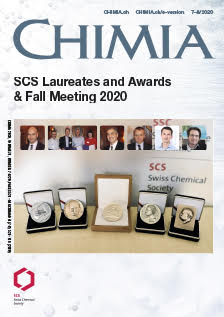Molecular Capsule Catalysis: Ready to Address Current Challenges in Synthetic Organic Chemistry?
DOI:
https://doi.org/10.2533/chimia.2020.561PMID:
32778208Keywords:
Catalysis, Cyclization, Host–guest chemistry, Molecular capsule, Supramolecular chemistryAbstract
Self-assembled molecular capsules, host structures that form spontaneously when their building blocks are mixed, have been known since the 1990s. They share some basic similarities with enzyme pockets, as they feature defined hydrophobic binding pockets that are able to bind molecules of appropriate size and shape. The potential to utilize such host structures for catalysis has been explored since their discovery; however, applications that solve current challenges in synthetic organic chemistry have remained limited. In this short article, we discuss the challenges associated with the use of molecular capsules as catalysts, and highlight some recent applications of supramolecular capsules to overcome challenges in synthetic organic chemistry.Downloads
Published
2020-08-12
How to Cite
[1]
I. Némethová, L.-D. Syntrivanis, K. Tiefenbacher, Chimia 2020, 74, 561, DOI: 10.2533/chimia.2020.561.
Issue
Section
Scientific Articles
License
Copyright (c) 2020 Ivana Némethová, Leonidas-Dimitrios Syntrivanis, Konrad Tiefenbacher

This work is licensed under a Creative Commons Attribution-NonCommercial 4.0 International License.







